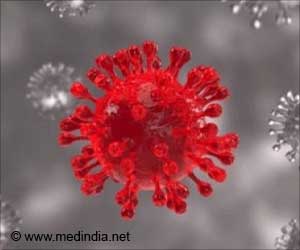Teen-friendly therapy that works! The ATTEND programme uses mindfulness to help teens manage depression & strengthen family bonds.

- Teenage depression is a serious problem in the UK that affects young people aged 15-19
- Adult mindfulness therapy is effective in treating adults but it may not be effective in teens
- The ATTEND programme includes skill-based therapy for teens and also includes sessions for family or caregivers
Adolescence is a formative period when a person experiences the transition from childhood to adulthood. It is important to ensure that adolescents are supported in all areas of life as it acts as a foundation for healthy and productive adulthood. It was estimated that one in seven adolescents experience mental disorders (1✔ ✔Trusted Source
Teen depression
).
Teenage depression is a serious problem in the UK that affects approximately 1,40,000 young people aged 15-19. Antidepressants and psychotherapy are effective but only 40% of them receive treatment due to a lack of professionals and barriers.
Many teenagers struggle with mental health but fail to get the needed support. Even among those who receive support, the treatment does not work effectively for most of them. Only about 35,000 receive treatment and of these 14,000 do not respond to treatment while 8,000 relapse after initial success.
Adult mindfulness courses help adults with depression but what works for an adult may not be effective in treating teenagers. Researchers developed mindfulness therapy specially to help teenagers cope with increasing levels of depression and mental health problems.
What is ATTEND Programme?
The ATTEND programme or Adolescents and carers using mindfulness Therapy to END depression includes sessions for parents and guardians to create a family-centred approach to solve the problem.
It was developed as a teen-friendly therapy that is more engaging and effective. This is based on the Mindfulness-Based Cognitive Therapy (MBCT).
MBCT is a therapeutic approach that combines mindfulness practice with cognitive behavioral strategies to avoid recurrent depression or relapse. MBCT is adjusted such that it can be more effective and suitable for teenagers.
Advertisement
The ATTEND programme is designed to help teenagers recognize and regulate negative thought patterns that can trigger or maintain depression and allow them to focus on the present moment.
Parental Support and Teen Engagement in ATTEND
In ATTEND programme, teenagers attend eight weekly skills-based sessions either in person or online in groups. It also included families to create an app that helps the teens strengthen the skills learnt between sessions.
Advertisement
It is difficult for families to support teenagers with depression as it is challenging to know what they need. To help parents, the programme offers separate training for parents or caretakers with teen sessions.
Parents can better understand and support their child’s recovery and helps in improving parent’s mental health and family relationships. Mindfulness for Adolescents and Carers includes movement breaks, shorter skill practice sessions, snacks and teen-friendly activities.
MBCT is well-established for adults, the ATTEND programme is a large trial to assess if mindfulness for adolescents and carers is more effective than the current treatment for depression.The trial will assess the outcomes such as recovery rates, relapse prevention and cost effectiveness comparing it with standard approaches. If successful this program can become a standard treatment option, which can be more accessible.
Young people and parents who have experienced depression were involved in developing the ATTEND programme. The programme is designed such that it meets the needs of families and is engaging for both teens and caretakers.
Reference:
- Teen depression – (https://www.mayoclinic.org/diseases-conditions/teen-depression/diagnosis-treatment/drc-20350991)
Source-Medindia



